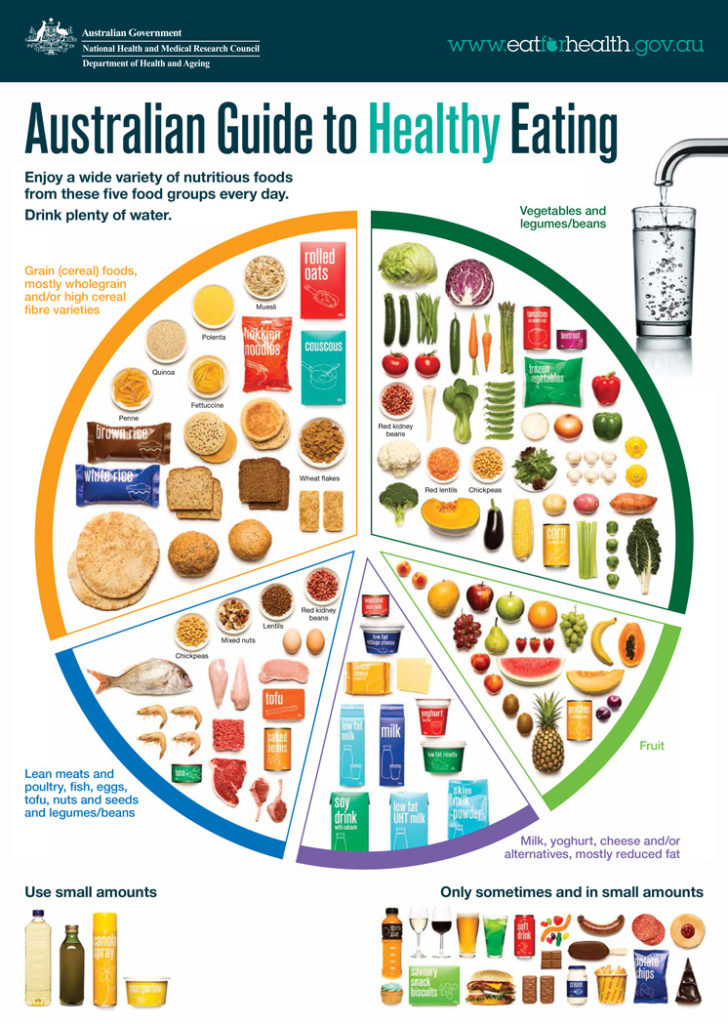Weight management forms a crucial part of first-line treatment for people with knee osteoarthritis. For some people, the goal will be to reduce weight, for others the goal will be to maintain a healthy weight.
Let’s begin by watching the next video with Dr. Adrienne Forsyth, a dietitian, who discusses some basics of weight management.
Frequently Asked Questions (FAQs)
Diet refers to an overall pattern of eating. It is relevant for all people with knee osteoarthritis. It can include things like the amount of calories you consume, the amount of fruit and vegetable you eat etc. Diet is an essential part of weight management.
Weight management refers to the steady maintenance of your weight. This is relevant for all people with knee osteoarthritis. Diet is likely to play a large part in effective weight management.
Weight loss refers to a reduction in weight. This is relevant for some people with osteoarthritis who may be overweight or obese. Diet will play a large part in effective weight loss in conjunction with an increase in your activity levels to burn off more calories than you consume.
Yes!
A healthy diet is a key component to weight loss and weight management and is encouraged in the management of a number of chronic conditions (including osteoarthritis).
Keeping a healthy weight can reduce or control the amount of force going through the knee.
Keeping a healthy weight may also help to control processes involved in inflammation in the body (including the knee joint).
To find out more about what constitutes a healthy diet use the following link: https://www.eatforhealth.gov.au/
Also be sure to add the weight management section to your guide.
Yes!
Losing weight will help your osteoarthritis if you are overweight. Just a 5% reduction in body weight can significantly improve symptoms, plus your general health!
The most accurate way to determine if you are overweight is using some simple measurements at your hips and waist. These are generally encouraged over other measures like the Body Mass Index (BMI).
First, see the below information about a waist circumference measurement.
circumference measurement.
For men:
- Below 94cm is considered a healthy waist circumference.
- Between 94-102cm you are at increased risk of developing a chronic condition.
- Greater than 102cm you are at a greatly increased risk of developing a chronic condition
For women:
- Below 80cm is considered a healthy waist circumference.
- Between 80-88cm you are at increased risk of developing a chronic condition.
- Greater than 88cm you are at a greatly increased risk of developing a chronic condition
Another measurement is the waist-to-hip ratio (i.e. comparing the circumference around your waist hips to the circumference of your hips). Use this tool here to help you determine your measurements
If you fall into a higher risk category then you may like to add the ‘lifestyle and general health’, ‘exercise’ and ‘weight management’ sections to your guide. This may help you lose weight over time.
If you need more specialist advice then please speak to your general practitioner to refer you to a dietitian.
Alternatively click here to access the Dietitians Australia accredited list of Dietitians.
No
There are no specific food or drinks that you should be absolutely avoiding to help manage your osteoarthritis. The key is to have a balanced, healthy diet.
Within a balanced, healthy diet it is recommended that you control your intake of processed foods and alcohol. To find out more about what is recommended for a healthy diet, click here.
The following is advice taken from Arthritis Australia
I heard I should avoid…
Nightshade foods: This food group includes tomatoes, potatoes, eggplant and capsicum. There is no proof that these foods have any effect on arthritis symptoms.
Acid-producing foods: Arthritis is not caused by eating ‘acidic foods’ like oranges, lemons or tomatoes. Very few foods are as acidic as our digestive juices. Foods termed ‘acidic’ are usually very rich in vitamin C, which is beneficial to the immune system. So avoiding these may do more harm than good.
Dairy products: There is no proof that dairy products cause arthritis. Dairy products are a rich source of calcium, which is an important building block for strong bones. Many people with arthritis are at an increased risk of osteoporosis (thinning of the bones) so dairy products may be extra important to maintain bone health.
Meat and meat products: There is mixed evidence about the effects of vegetarian diets on arthritis. These diets tend to increase your intake of vitamins as you eat more vegetables and fruits. Lower levels of fat in this diet may also help you to lose weight. These factors may help with arthritis symptoms. However a strict vegetarian diet may mean you miss out on other important nutrients, such as iron and vitamin B12.
Food intolerance: Some people may have a reaction, such as an upset stomach, after eating or drinking certain foods. This may be due to a food intolerance. If you feel that certain foods are causing problems, talk to a dietitian or your doctor. They may suggest you be tested for food intolerances. Do not cut whole food groups from your diet without talking to your doctor as you may miss out on important vitamins and minerals.
Losing weight is really hard! It will take time and lots of willpower.
In its most simplest form, you need to reduce the amount of calories that you consume in comparison with the amount that you burn off throughout the day. It is therefore recommended that you:
- Alter dietary patterns to reduce your calories
- Increase your physical activity
You can attempt to lose weight through either of these channels, but it is recommended that you do both together. BUT – for some people, trying to implement too many things at once results in failure. To provide you with the tools to help you reduce your weight, the ‘weight management’ section in the personalised guide-maker. In the guide you will be provided with some simple practical steps that you can try and implement yourself.
The key is to make small achievable goals.
If you are interested and want more information about healthy eating, including tips for healthy eating and personalised calculators, head over to the government ‘Eat for health’ website by clicking here (opens in new tab).
Watch our main video at the top of this page where Dr Adrienne Forsyth explains the latest research about supplements.
You can also watch the video below to listen to those living with osteoarthritis and their views on the use of supplements.
What are the weight management experiences of people with knee osteoarthritis?
Resources and additional information
Next – Second line treatments

